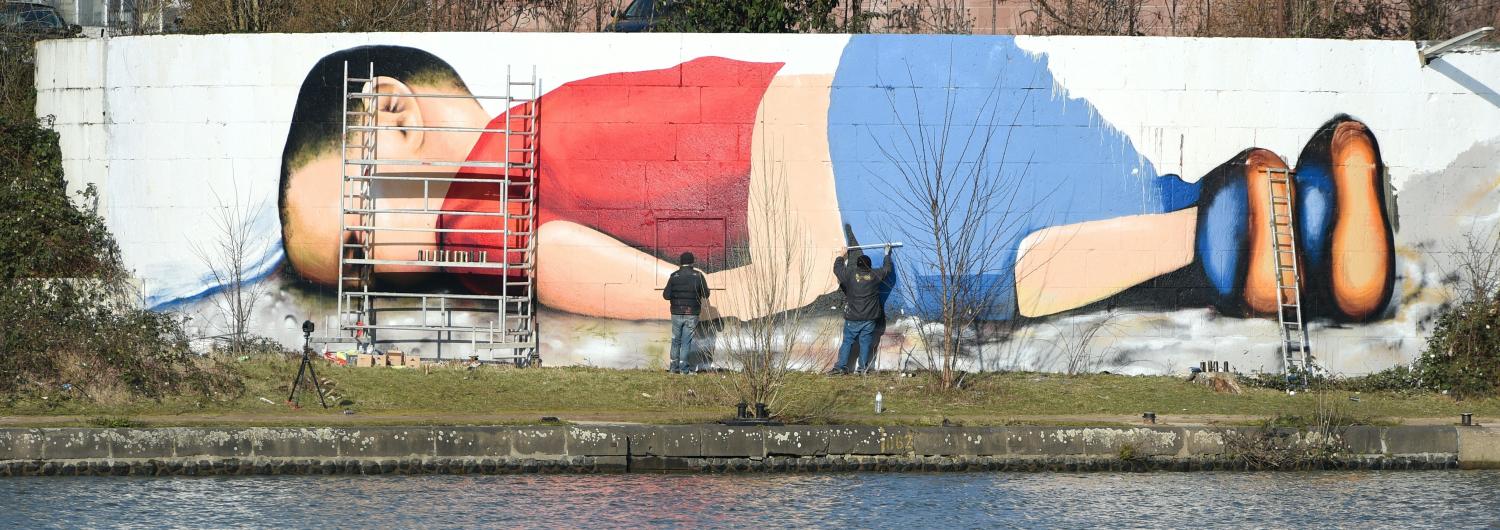In the East German city of Dresden upwards of 5000 protesters linked to the anti-Islam PEGIDA (Patriotic Europeans Against the Islamisation of the West) party march through the streets every Monday.
It's a confronting sight for the hundreds of newly migrated Syrians allocated to the city, a small subset of the one million plus who have arrived in Germany after Chancellor Angela Merkel opened the gates to the human tide of refugees in August last year. The marchers are also a weekly reminder of the widespread and vocal opposition to the migrant influx that has gathered strength in recent months. Now, as Merkel gears up to fight a national election next year, she is reckoning with the political cost of the humanitarian policy.
This was not the expected outcome. Initially Germans appeared to welcome Merkel's determination to show Germany was politically and economically strong enough to cope with vast numbers of refugees, famously reflected in her phrase 'We can do it'. They volunteered in droves to help the newcomers and vision of welcoming groups at train stations was broadcast around the world. But the practical difficulties involved in absorbing such large numbers soon became apparent. Many have struggled to find work. An ugly New Year's Eve incident has had a lingering impact (even though it later emerged that only three of the 58 men arrested after the mass sexual assault on women in Cologne were refugees from Syria or Iraq). Six in ten Germans think refugees increase the possibility of terrorism in Germany. Other factors too have helped to galvanise a growing anti-Muslim movement.
There have been hundreds of attacks against Syrian migrants involving physical and verbal abuse. Women report having their hijabs pulled off in the street. Some of the ugliest scenes have taken place in Heidenau, a town just east of Dresden where a former military barracks that was home to 700 newly arrived Syrians was attacked by arsonists. Anti-immigration riots in the town saw dozens of police officers injured and the rioters reportedly chanted 'Heil Hitler'. In another eastern city, Bautzen, people reportedly cheered as a refugee shelter went up in flames, also the subject of an arson attack. Riots have also broken out in Dresden and elsewhere with refugees attacked with bottles and stones.
Najim, a 26-year-old Syrian from Deir El-Zor whom I met at his compulsory German integration class in Heidenau described being attacked by a group of men on a train home early one evening.
'They beat us with poles. It was awful,' he said.
Najim told me he was keen to meet Germans and make some new friends but this was hard because he was always grouped with other migrants.
The political impact is clear. In September, Merkel suffered a damaging defeat in regional elections, ceding significant ground to the right wing anti- immigration Alternative for Germany (AfD) party in Berlin. The party is making gains and polls suggests it has around 14.2% of the general vote.
Now, as Merkel attempts to wrest back popular support from the right, she appears to be backtracking on her pro-migrant position. She is also taking a tougher line on Islam in an attempt to appease her centre right supporters.
In a marked departure from her previous position, last week she told the Christian Democratic Union (CDU) conference she supported a ban on the full face veil - a controversial move that sowed immense division in France and was rejected in Germany last year.
Merkel has also vowed to deport many of the new arrivals and a bill to open deportation camps has just been passed.
'We’re the party with a C in its name,' she told the party congress and, in the lead up to Christmas, suggested Muslims adopt Christian traditions
As far right movements make sweeping gains across Europe and the West, many have seen Merkel's traditionally more charitable approach to the refugee crisis and her vocal disapproval of Donald Trump as a bastion of hope for the left. But it seems her good intentions were too ambitious for a Chancellor seeking re-election.

